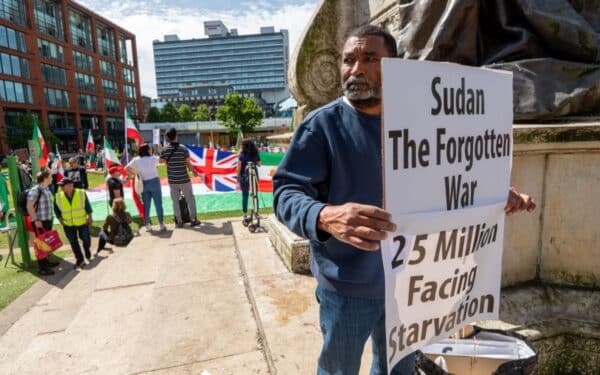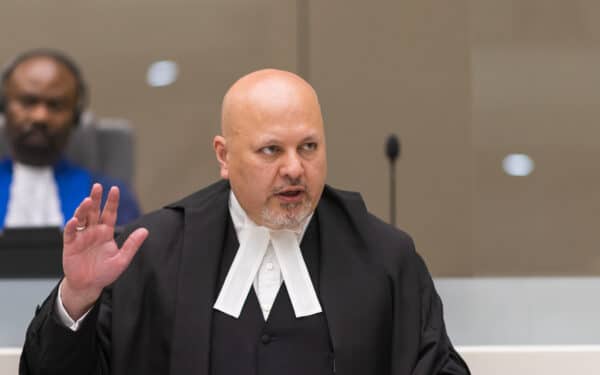Today there is another turning point election – this time to choose a new president of Algeria, the tenth oil and gas producer of the world and the third biggest exporter in Africa.
The vote comes after nine months of mass demonstrations in Algeria, and most of the principal cities. The protesters are of the self-styled “Hirak” (Berber for, literally, “movement”) have turned out by the thousand, and on occasion by the hundred thousand, to demand new rulers and a new set of rules in the form of a transparent, constitutionally open, multi-party republic. It has been called the “revolution of smiles” by the French press, because of the absence of bloodshed.
Since independence after a bloody insurgency against France in 1962, Algeria has been pretty closed to open political and democratic dialogue. It has been run by an oligarchy of “mujahideen” the clans that led the fight against France. With business, army and community clan connections, these are known as “Le Pouvoir”. In turn this elite complements the military high command, which, too, pulls a big share of patronage strings.
In 1991, the army stepped in as it was feared that the Islamist formation of the Islamic Salvation Front was about to win outright a second round of elections to the national assembly. This saw the beginning of an Islamist insurgency and civil war, with the FIS being supplanted by the more militant Islamic Group. This cost at least 100,000 lives. In 1998, the army’s man Abdelaziz Bouteflika became president, head of government and head of state – the power figure of Le Pouvoir.
“Since then everything froze,” says Heba Saleh, who has reported on Algeria for more than three decades for the Financial Times and the BBC. “A generation of Algerians felt robbed of politics altogether.”
This year, the presidential office let it be known that their man, now 82 and almost silenced by a stroke two years ago, would run for a fifth term when elections came up in the summer. This brought the demonstrators out in two huge marches and protests on 16th February and 22nd February. Their first demand was that the aged, not to say decrepit, Bouteflika must go.
Sensing the way the wind was blowing, General Ahmed Gaid Salah, head of the army, told Bouteflika that he must step down immediately – which he did. Gaid Saleh was acting with the preservation instincts of his own armed forces and his allies across Le Pouvoir. But this didn’t stop the demonstrators. They demanded corrupt oligarchs be brought to justice, and that the constitution be reformed. Each Tuesday the students have held their rallies and protests, while a broader spectrum of protesters has turned out every Friday.
The demonstrators have been remarkable consistent, and persistent. The authorities have tried shutting down the internet, and trolling and disrupting social media. For their part, the activist leaders managed to stay anonymous and keep their messages coming.
A significant feature has been the lack of violence – only three deaths have been recorded, and all three don’t seem directly related to the rallies themselves.
The worst fears haven’t been realised, nor have the best hopes. “There are two possible routes,” Soufiane Djilale of the Jil Jadid opposition party said back in the summer: “It will either be a takeover of power by the army, or the opening of a dialogue with the political class to organise a transition.”
Neither has happened – instead the acting president announced the presidential election for July – since then postponed until December 12th. A slate of 23 candidates has been reduced to five, including two prime ministers, and a moderate Islamist who has worked as tourist minister.
“There is no obvious leader, and really no obvious programme,” said a highly experienced diplomat in Algiers, who has spent a great deal of time among the crowds. “They seem to want evolution – realising revolution is impossible. They also want to go back to what they see as the founding principles when the republic was founded in 1962 – not foreign influence, which they see as colonialist, and they are very doubtful about foreign investment.”
The authorities have made conciliatory moves – the powerful younger brother of the old president, Said Bouteflika, has been sentenced to prison for corruption and trying to undermine the army. Several others of Le Pouvoir have suffered a similar fate.
It’s the sense of how little has changed in Algerian politics that strikes Antonio Armellini, a former Italian diplomat and strategic commentator, who was Italian ambassador in Algiers in the nineties at the time Bouteflika came to full power. “There is an awful sense of ‘immobilism’ – it’s still much the same crowd in charge. I don’t see much new coming from these elections.
“The astonishing thing is the growth in population – just think Algeria’s population has just about doubled since I went there just over twenty years ago. Youth unemployment is worse than ever.”
Today the population of Algeria is 43 million; at the time of independence in 1962 it was around 11.5 million. By 2030 it will be around the 50 million mark. More to the point, perhaps, is that one quarter of today’s population is below the age of 15.
The adherence to a notion of a command economy, little diversification of investment in small and medium enterprises, and overreliance by the government, Le Pouvoir and the military, on the easy revenues of oil and gas exports, have led to unemployment, particularly unemployment of young people between 15 and 25, now nudging 23%.
The most obvious sign of this is embraced by a peculiar Algerian expression, the “hittistes,” meaning “those who lean against walls” – the state of thousands of young men across Algeria’s cities and villages. Another equally poignant piece of argot is “harraga” (in Arabic meaning “those who burn”, as in burn boats), the migrants desperately trying to reach Mediterranean islands and enclaves in EU countries. The flow is not as significant from Algeria as from Libya – yet. But they are travelling in increasing numbers, especially to Sardinia and via Morocco to Spain, sometimes attempting to break into the enclaves of Ceuta and Melilla.
Officially, unemployment is around the 11 to 12 per cent mark, which is generally regarded as a pretty conservative estimate. The outlook is clouded further by the weakening of revenue from gas and oil – the staple export by which the oligarchs of Le Pouvoir maintain their position and lifestyle. Gas revenue has fallen about 18% since the financial crisis of 2008, according to a senior diplomat in Algiers. The picture is worsened by the need to divert increasing amounts of the gas yield to the ballooning population. Currently some 40 per cent of gas output goes to domestic supply.
The infrastructure of the oil and gas sector, from exploration to exploitation and distribution, is in urgent need of modernization and overhaul. This requires foreign investment. The big players such as Italy’s ENI and France’s Total have long been put off by the “51/49” regulation. This is a direct legacy of the neo-marxism of the post-independence regimes of Ahmed Ben Bella and Houari Boumédiènne. It holds that a foreign company can only hold a 49% stake in a joint enterprise to 51% by and Algerian enterprise, or state corporation.
In October, the government introduced a new law dropping the 49/51 norm, specifically aimed to get a consortium of Eni-Total to engage in a huge new development in the gas sector. The Algerian state, however, still maintains the 51% stake for real estate and ground rights. Rumours abound that the announcement is imminent of two large offshore gas fields to be exploited by ENI and the French. Official sources are coy, but one interlocutor has confirmed “they are not ready to announce yet, but the satellite imagery looks very positive.”
The change in the energy law has fueled a further stream of protests from the crowds of Hirak demonstrators – seeing it as a betrayal of the principles of the state’s founders. This coincided with a surge in arrests and detentions, including those waving Berber nationalist flags.
Both December 12th elections in Algeria and the UK suffer from a new disease of low expectation. In the last week before polling in Algeria some feared a turnout as low as 20 to 25 per cent. This wasn’t helped by a stiff staging of a television debate between all five candidates, the first in Algerian history. “They didn’t impress,” said one highly politically literate viewer. “They all offered some sort of reform, and have at least agreed on a fresh general election for the assembly. Of course, they insisted they would improve state welfare.”
Welfare has been a central part of the state’s offer since independence. But here my viewer friend noticed an important change. “For the first time no candidate could claim to be mujahedeen – of the generation that had fought with the FLN for independence. We have moved on.”
As interesting and significant as the election itself is what will happen on the street the day after, or the week after, and how the Hirak demonstrators will react. So far, they have been offered a new general election, with moderate constitutional and welfare reform. But they have demanded more – a wholesale new system and an end to the dominance of Le Pouvoir and their corrupt ways.
There is an echo here of the demonstrations this autumn in Lebanon, Iraq, Iran and Chile. The first three have been marred by terrible, and in many cases deliberate, violence – with snipers in Iraq deliberately targeting unarmed demonstrators. So far, Algeria has not suffered state contracted violence of the same order.
A week before the election, on December 5th, a meeting was held in Rome of the Mediterranean Dialogue, a forum for Nato and seven Mediterranean countries and hosted by the Italian government. It was completely overshadowed in news terms by the London Nato anniversary meeting, but in concrete political terms could prove more significant. Among those present was Russia’s foreign minister, Sergei Lavrov, as well as representatives from the Gulf Cooperation Council states.
Crucial discussions focused on the parlous state of Libya, and what this might mean for the region. The Italians warned against foreign interference on behalf of the Benghazi warlord Haftar Khalifa, sponsored at times by Russia, Egypt, UAE and Qatar. “It was made clear that Haftar is no solution, and he is now very much part of the problem,” an official present told me this week. This was an evident warning for Russia as Khalifa has tried, and failed, to take Tripoli, where snipers from Russia’s Wagner corporation are now working.
“We were very anxious,” the official continued, “that this kind of instability shouldn’t continue west into Algeria.” He said there was also a subtle warning to France about further adventurism in Libya and North Africa. “Algeria so far has been relatively stable, but it is in the middle of a highly volatile part of the world.”



